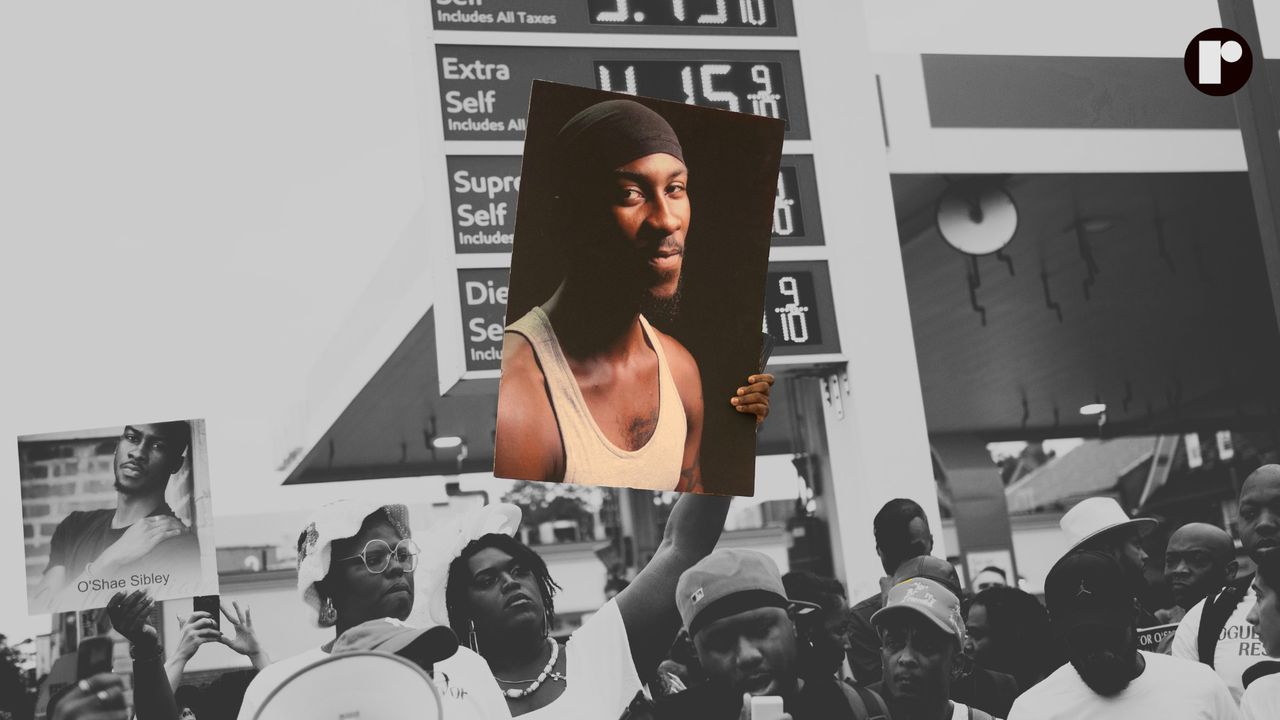OâShae Sibleyâs teen murderer is actually Christian. Hereâs what queer Muslim leaders have to say.
Last week, thousands mourned a Black queer man named O’Shae Sibley who was killed on July 29 for voguing to Beyoncé’s Renaissance album with friends while pumping gas in Brooklyn, N.Y.
One of the teens, whose name was released to be Dmitriy Popov, stabbed Sibley in the chest as a result of the altercation.
Thirty-two-year-old gas station attendant and witness Summy Ullah told The New York Times that the teens who approached Sibley told him, “I’m Muslim. I don’t want this here.”
For a week, news continued to circulate that Popov’s Muslim identity was a direct reason for his murdering, which caused an uptick of Islamophobic rhetoric online. On X, formerly known as Twitter, people expressed their disdain over the initial notion that Popov is Muslim.
“This is Brooklyn, not Gaza,” one user said. “Being murdered by fundamentalists for being queer and dancing in your underwear on the streets of New York is insane.” Another user said,”Islam is a cult, I will never change my stance on this,” while one took it as far as to say, “I’m mowing down the next hijab I see.”
But this week, Popov’s lawyer disclosed that the teen was a “good Christian boy” and queer Muslim leaders are sparking a multifaceted discourse about the incident.
While many outlets continued to share the notion that Popov is Muslim, his attorney recently clarified that his client lied and is actually of Christian faith.
Popov’s attorney Mark Pollard tells Reckon that despite the news circulation of Popov’s Muslim identity, the teen attends church regularly as a Christian.
“I’m not sure where the Muslim angle comes in,” he said, confused why Popov claimed to be Muslim. Pollard explains that while he finds out more information about the incident once he gets more “discovery and so-called evidence” in the case, he is unequivocally certain that Popov—who turned himself in last Friday—is a Christian.
“He’s clearly not a Muslim,” he said over the phone. “It’s not even debatable.”
The week where it was widely reported that Popov is Muslim struck a wound that Muslims have long felt in the U.S. After 9/11, Muslims, along with those of Arab and South Asian descent became targets of racial profiling by the government. Trump’s Muslim Ban was one of his presidency’s most defining legacies, which resulted in a series of blocks and new iterations that will only intensify as he vows to bring an “even bigger” ban for the 2024 presidential election.
“As a queer Muslim, my faith does not promote hate and violence,” said Mohamed Q. Amin, the founder and executive director of Caribbean Equality Project, a community-based organization for LGBTQ Caribbean immigrants.
Amin tells Reckon that they are critical of the many Muslim leaders who were silent about Sibley’s murder since before Pollard cleared the air over Popov’s religious background.
During a press conference on Saturday held by Mayor Eric Adams—when it was still understood that Popov was Muslim, Muslim leader Soniya Ali was one of the few to speak out on behalf of the Muslim community.
“As Muslims, we are commanded to stand up for justice even if it means standing against our own selves. We unequivocally condemn the unjust murder of O’Shae,” said Ali, who is the executive director of Muslim Community Center.
When Ali learned that Popov lied and was falsely reported to be Muslim, she told Reckon that the stigma of Muslims being posed as a societal threat “is nothing new. From Muslim surveillance to [Islamophobic] policies, we have endured much.”
The misinformation that Popov is Muslim only contributes to the pre-existing adversity Muslims face, because although 9/11 was over two decades ago, being Muslim in the U.S. continues to be difficult to navigate.
A 2021 poll by The Associated Press-NORC Center for Public Affairs Research showed that “53% of Americans have unfavorable views toward Islam”, despite how the population of Muslim Americans continues to grow today.
Even the day after Sibley’s death, a group of Muslim women were attacked in Milwaukee’s Cathedral Park Square; they were punched, put in a headlock and had their hijabs ripped off their heads. In Sibley and Popov’s case, and given the unfavorable views Americans have towards Muslims, the notion that the teen is Muslim was quickly accepted without confirmation and widely shared in a negative light.
When it was widely believed that the murderer is Muslim, queer Muslim leaders were quick to set the record straight that the murder of Sibley is not indicative to Islamic codes of conduct.
“Muslims are not a violent religious group,” Zain Islam-Hashmi said. He is the co-chair of the US chapter of Hidayah LGBTQ, an organization that provides support and welfare for LGBTQ Muslims.
Islam-Hashmi tells Reckon that even if Popov was Muslim, he was not representative of the community. “Violence has become a symptom of misunderstanding, confusion and ignorance towards the LGBTQ community, and each of us has a role to play in making sure this never happens again.”
He adds that, if anything, the work of Hidayah LGBTQ not only provides resources for LGBTQ Muslims, but for all queer, trans and nonbinary people—including Sibley.
Ultimately, misinformation over Popov’s religion does not change the fact that Sibley’s life was taken simply for expressing himself through dance.
Silbey’s mother Onetha Sibley hopes for swift justice for her son’s murder. “I’m gonna miss that soul, but I hope justice is served,” she said over the phone to PIX11. “Because this is tragic. It didn’t have to happen.”
